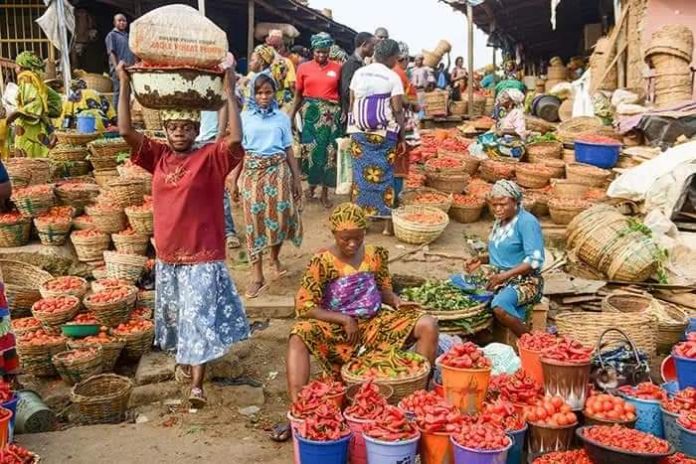Nigeria’s hunger crisis has reached an alarming level, and the situation demands immediate and concerted action from both national and international stakeholders. With millions facing severe food insecurity, the consequences of this crisis extend beyond mere hunger, affecting health, economic stability, and social cohesion.

The crisis is driven by a complex interplay of factors which has displaced countless individuals and shattered agricultural productivity. Economic instability, aggravated by fluctuating oil prices and mismanagement, has diminished purchasing power and exacerbated poverty. Additionally, climate change has disrupted farming patterns, further straining the nation’s food supply.
Nigeria is grappling with an unprecedented hunger crisis, with dire implications for millions across the nation. Over 20 million people are currently facing acute hunger, while 7 million children are at grave risk of malnutrition. The severity of this crisis is underscored by the fact that 1 in 5 households struggle to afford basic food necessities.
In July, the Federal Government announced a 150-day duty-free import window for food imported through land and sea borders. The impact has yet to be felt. An ad hoc arrangement to supply bags of rice at N40,000 per bag to civil servants was halted last week as beneficiaries reportedly resold the rice at N85,000 per bag. These measures should be reviewed to hasten the desired effects.
The food crisis has been long in coming. Even though agriculture remains the largest contributor to GDP at 22 percent and employs 36 percent of the labour force, low yields, and lack of widespread adoption of modern agricultural practices have hobbled productivity. Nigeria’s tractor density is 0.27 hp/hectare, far below the FAO-recommended tractor density of 1.5 hp/h.
The sector suffers from low yields due to shortages in seedlings and fertiliser supplies and inadequate irrigation and harvesting systems. Storage systems are antiquated, resulting in massive post-harvest losses. The rural roads are shabby.
Addressing this crisis necessitates a dual approach. Immediate relief efforts are essential to prevent further suffering. Emergency food aid and humanitarian support must be scaled up and distributed efficiently to those in greatest need. However, short-term relief alone will not suffice.
Long-term solutions are critical to creating sustainable food security. Investment in agriculture is key—this includes supporting farmers with modern tools, training, security of lives and properties, improved infrastructure to reduce post-harvest losses and enhance productivity.
However, the most significant challenge remains insecurity. A situation where farming has become a dangerous occupation makes the case for state policing more compelling. The federal police have proved ineffective in tackling banditry. Some states have formed special security and vigilante corps, which have tamed banditry and kidnappings within their respective jurisdictions. These arrangements should be formalised to strengthen security nationwide and allow states to meet peculiar security needs.
Moreover, economic policies that foster growth and stability will help lift people out of poverty and enable them to access food more reliably.
The Nigerian government must take proactive measures to resolve conflicts and improve governance to provide a stable environment for these solutions to take root. Collaboration with international organizations can also provide valuable support and resources.
International partners have a role to play not only in delivering aid but also in addressing global trade policies and climate change issues that affect food security. Their support in bolstering Nigeria’s agricultural and economic resilience is crucial.
The federal and state governments must revamp the school feeding programs, particularly for primary school pupils. No child should go hungry while state officials squander public funds on trivial matters.
In conclusion, the hunger crisis in Nigeria is a pressing emergency that requires urgent and sustained action. By combining immediate relief with long-term strategies, there is a path to alleviating hunger and fostering a more stable and prosperous future for Nigeria.

